On this week’s edition of The Goggler Pull List, we review and recommend Emilia Clarke’s debut comic series M.O.M: Mother of Madness and Marvel’s new Wolverine: Black, White & Blood.
Let’s go…
M.O.M: Mother of Madness (Emilia Clarke, Marguerite Bennett, Leila Leiz)

Because Emilia Clarke wasn’t accomplished enough already, she decided to go ahead and add author to her long list of achievements. You know, First of Her Name, The Unburnt, Queen of the Andals, the Rhoynar and the First Men, Queen of Meereen, Khaleesi of the Great Grass Sea, Protector of the Realm, Lady Regent of the Seven Kingdoms, Breaker of Chains, Mother of Dragons, and comic book writer.
And guess what? She’s really good at this too!
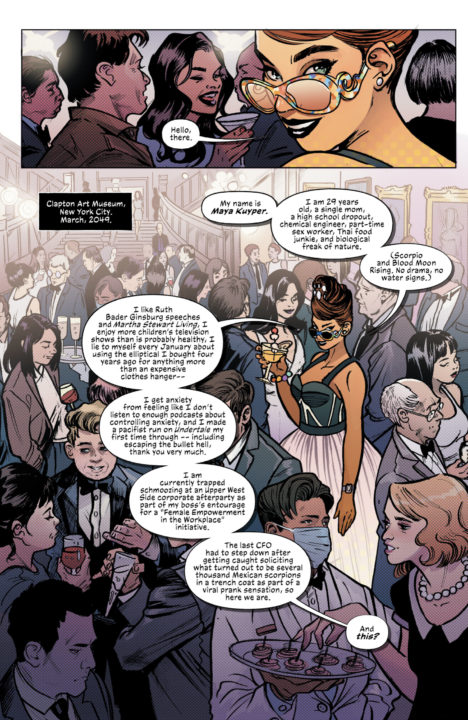
M.O.M.: Mother of Madness, a three issue mini-series from Image, is a superhero story in which our protagonist derives her powers from the hostilities and criticisms that women are forced to face everyday. Maya is a scientist and single mother, whose abilities seem to be brought on by her menstrual cycle, and are just as unpredictable. They are also inextricably linked to her emotions. Whenever she’s afraid, she becomes invisible. If she’s anxious, she develops super-hearing. And so on.
Set in the year 2049, the world which Maya inhabits may be a logical exaggeration of our own, but it isn’t an inconceivable one. This satirical take on society, in which gender bias and blatant sexism seem even more rampant than they are now, that creates a pressure cooker environment in which an individual is constantly facing semantic violence just for being a particular gender, is the perfect setting for this feminist tale.
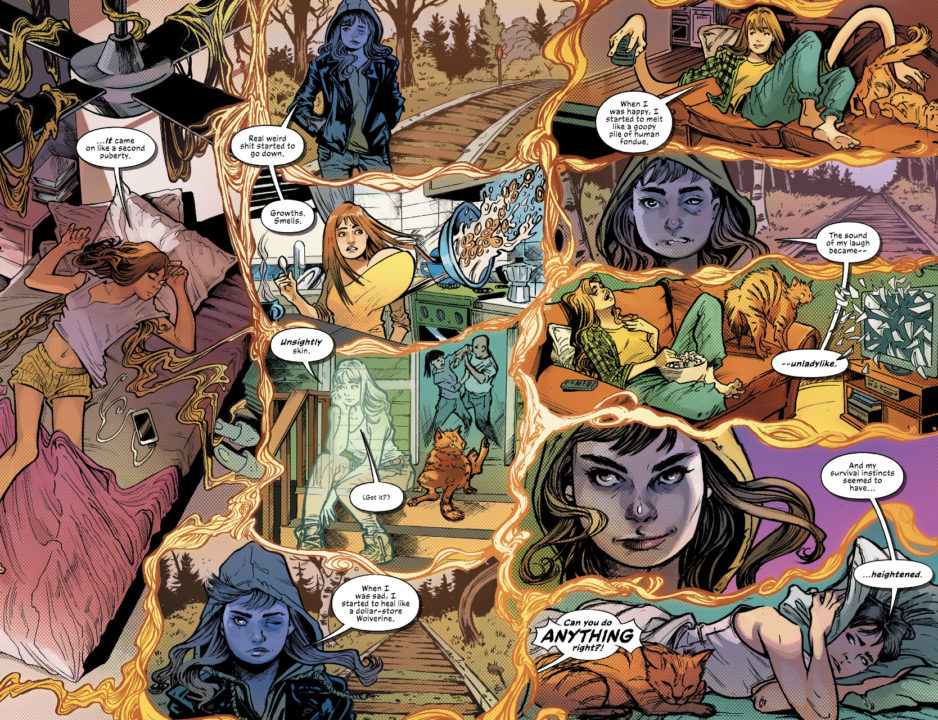
Clarke and Bennet approach the writing of this comic with a certain indie sensibility. Think Joss Whedon meets Fleabag. This is an origin story and our protagonist is very much aware that it is. She’s constantly breaking the fourth wall, pulling us into her narrative, and creating an intimate connection that allows us to feel everything she is. So much to that there is an immediate rage on our part whenever Maya is forced into yet another an uncomfortable or unforgivable situation.
I love the slightly self-conscious and verbose Maya. She is funny, and entertaining, and instantly endearing.
There are moments when the message can feel a little heavy handed, but even that seems to fit with the overall tone of the comic book. Nuance and subtlety hasn’t really worked in affecting change and the whole point of this meta-narrative is to drive home the point of how much worse the world will get if we just keep on keeping on.
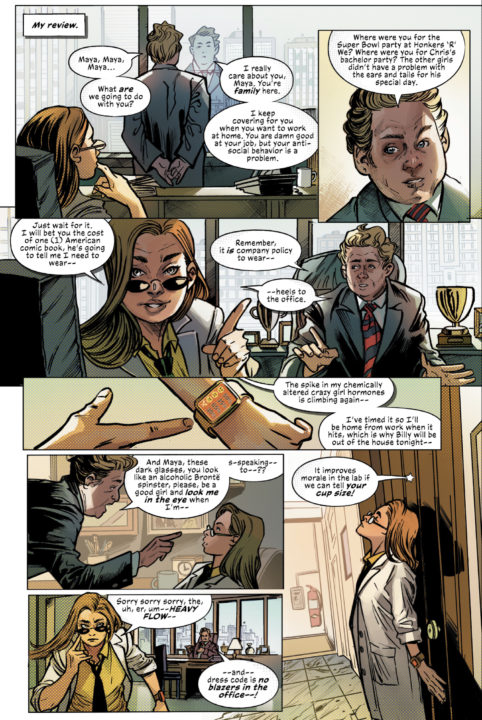
Leila Leiz’s artwork is arresting. From that stunning first page, when we see Maya stand out amongst the slightly greyed out crowd at an office party, to the climax of that opening scene when she ends up spotting on her skirt, Leiz manages to create a sense of awkwardness and discomfort. But one that isn’t removed from what Maya is going through. We cringe with her, not at her.
It’s no surprise that Maya bears a striking resemblance to Emilia Clarke. Even the title of the comic Mother of Madness seems like blatant callout to Clarke’s role as Daenerys Targaryen on Game of Thrones. This comic wants to link those things in your mind. Where Game of Thrones ended with a tragically anti-feminist take on one of the best characters in modern television, this comic seeks to reframe and redefine the journey of an extraordinarily powerful woman.
Both the writing and the art work brilliantly to create a uniquely frantic narrative energy. M.O.M: Mother of Madness was a joy to read because it subverted my expectations at every turn. It isn’t just a new take on a superhero, but also a cunning reinterpretation of how a female hero should look, and feel, and act. It’s been a long time since a superhero comic has surprised me. This one did with a hero’s journey that is complex, and emotional, and fresh.
Wolverine: Black, White & Blood (Various)

Logan. Patch. Weapon X. Wolverine. The mysterious mutant has gone by many names and lived many different lives. Many tales have been told of his exploits. Many more remain unsung. These are some of those untold tales.
Wolverine: Black, White & Blood
These words greet every issue of the new Marvel comic, Wolverine: Black, White & Blood. Much like DC’s Superman: Red & Blue, this Wolverine series is a collection of short stories that bulk up the legend that is Wolverine’s long and (mostly) immortal life. In these first four issues we see extensions to some of Wolverine’s extraordinarily long life, from his days as Weapon X, to his life in Japan with Mariko.
Much like the Superman series, Wolverine: Black, White & Blood is coloured in just three main tones. But unlike the Superman series, this has a lot of blood. Gratuitous, unending, truckloads of blood.
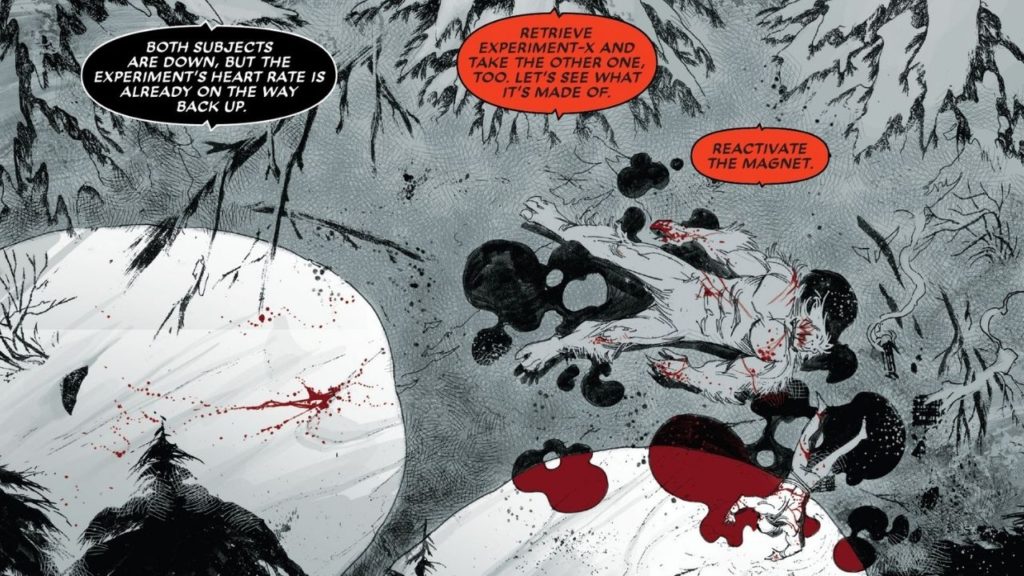
These collected short stories (Marvel has also released a Carnage: Black, White & Blood series) do more than just rehab what we already know about these characters. No longer is Wolverine just running a mission with the X-Men, he is too busy surviving; trying his hardest to just live. Wolverine: Black, White & Blood is filled with blood and violence, but also regret, and pain, and dark memories. These adventures of Wolverine are less the adventures of a superhero and more the story behind the scars of an extraordinary life lived.
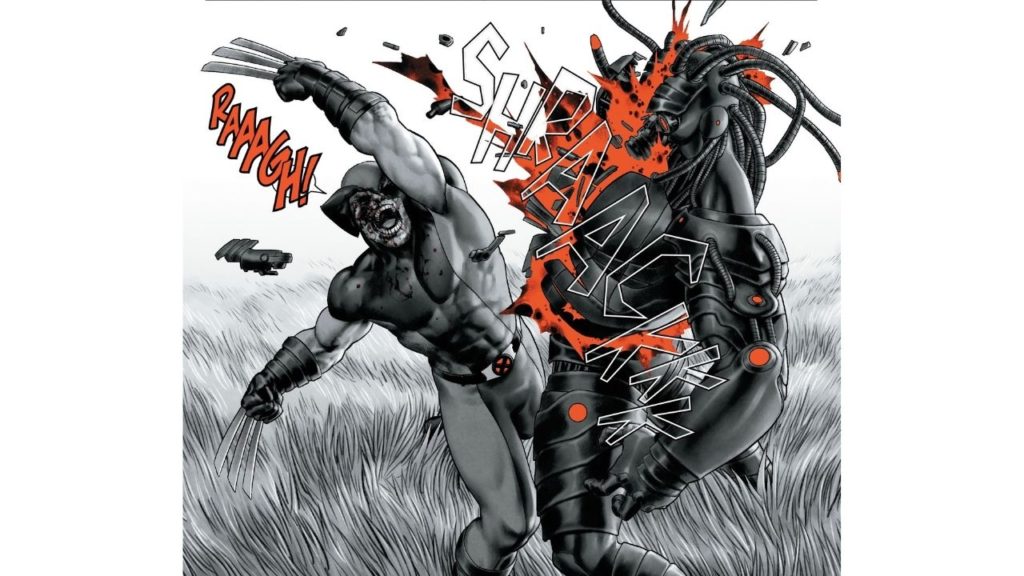
Each issue of Wolverine: Black, White & Blood is filled with stories by some of the best writers working in comics too, from Gerry Dugan and Chris Claremont, to Donny Cates and Steven S. DeKnight. But the standout story in the entire series has to be Academy Award winner John Ridley’s “32 Warriors and a Broken Heart,” from Issue #3. In it, John Ridley tells the story of Wolverine’s time in Japan as he fails to be a father to a young orphan girl. Kidnapped by a rival samurai, Wolverine is forced to face 31 warriors in order to save the young Amiko, only to fall at the final battle.
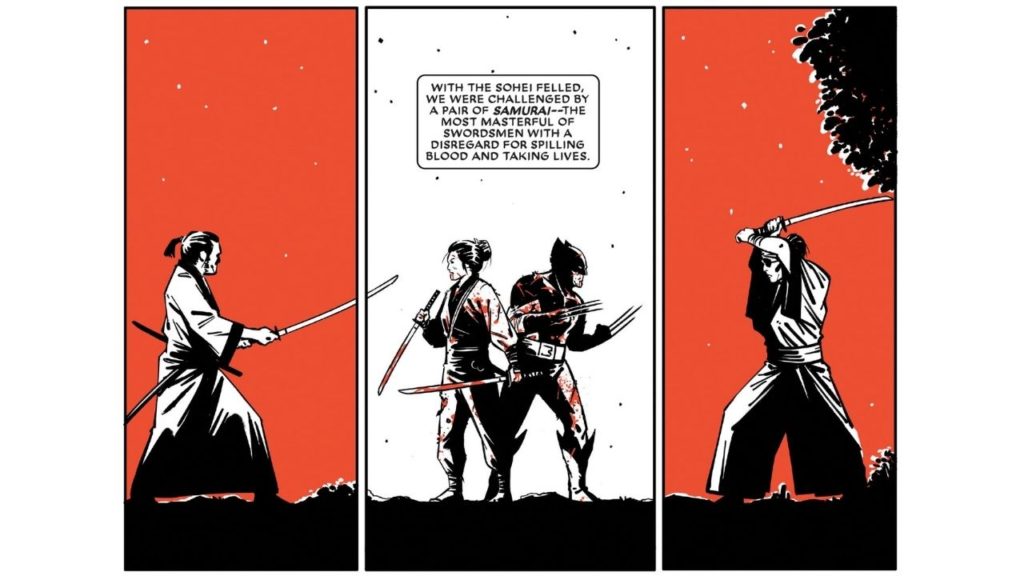
The Wolverine we see in “32 Warriors and a Broken Heart” is layered, deep, full of regret and emotion. A side of Wolverine that we have seen too rarely in X-Men stories.
Yes, there is plenty of comic book action, violence, blood, and brutality in this series, but it’s Wolverine’s humanity in the face of it that shines brightly through. Despite only being in shades of black, white, and red.

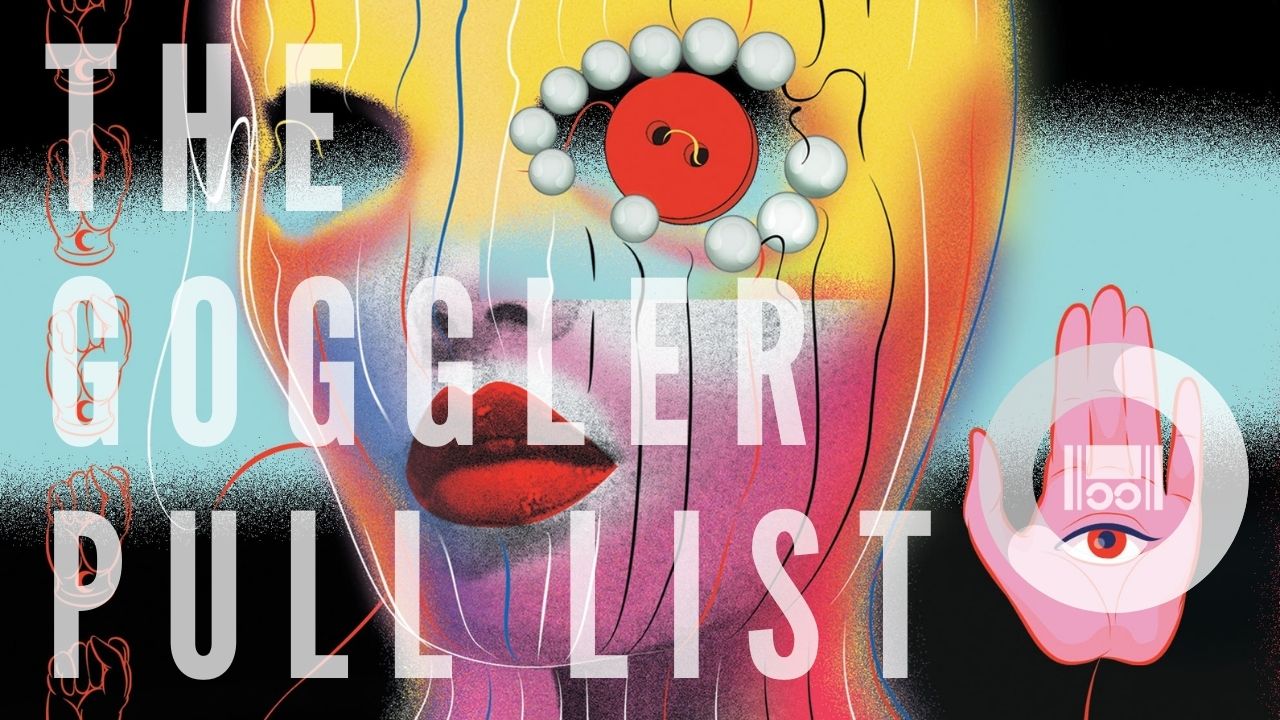

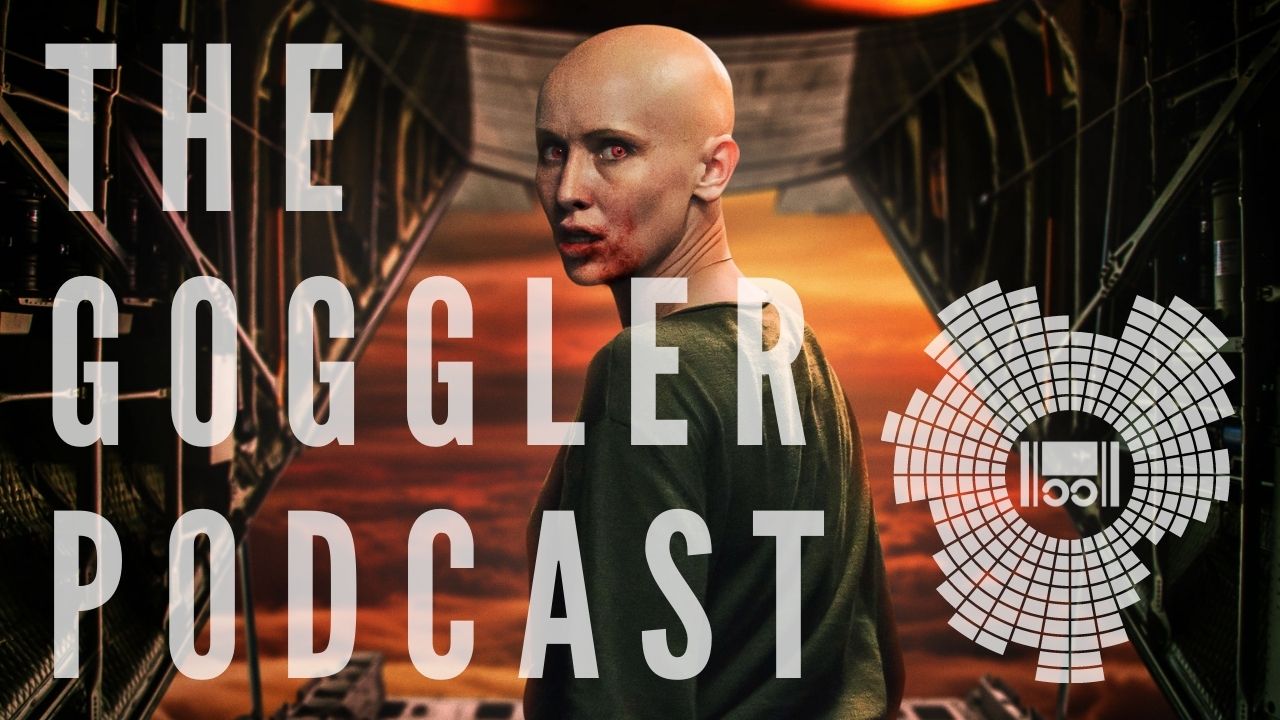
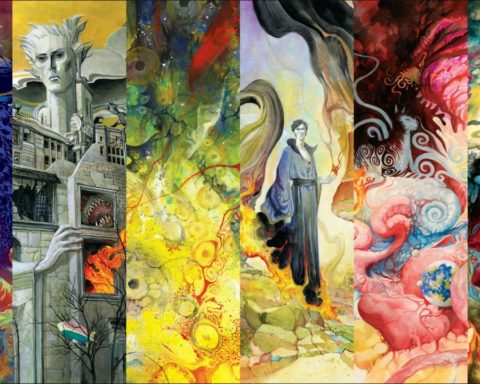
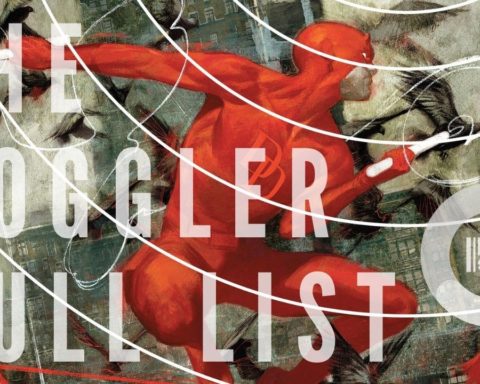



Follow Us